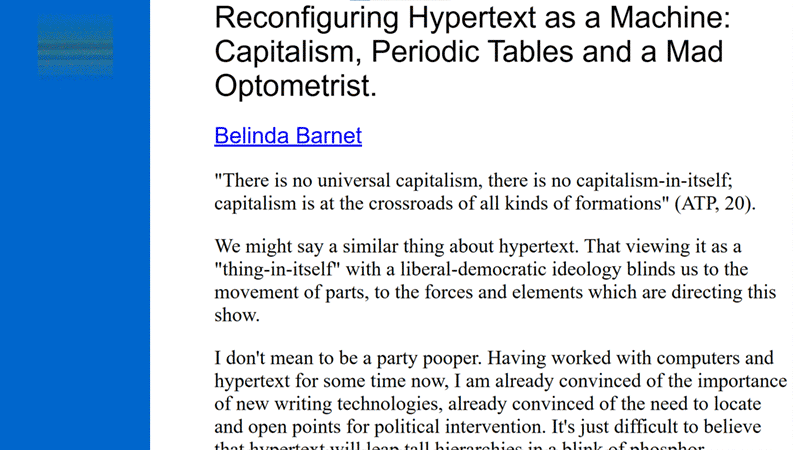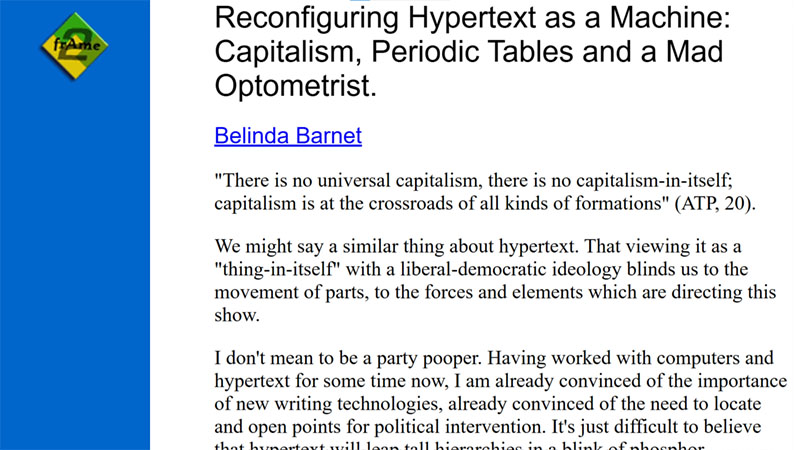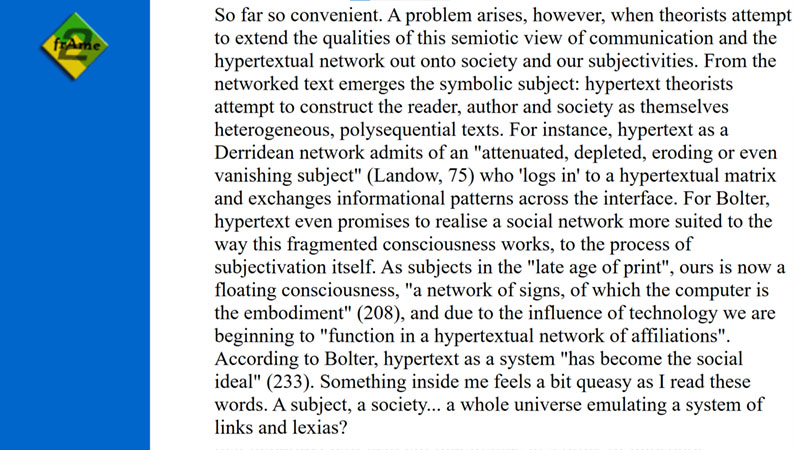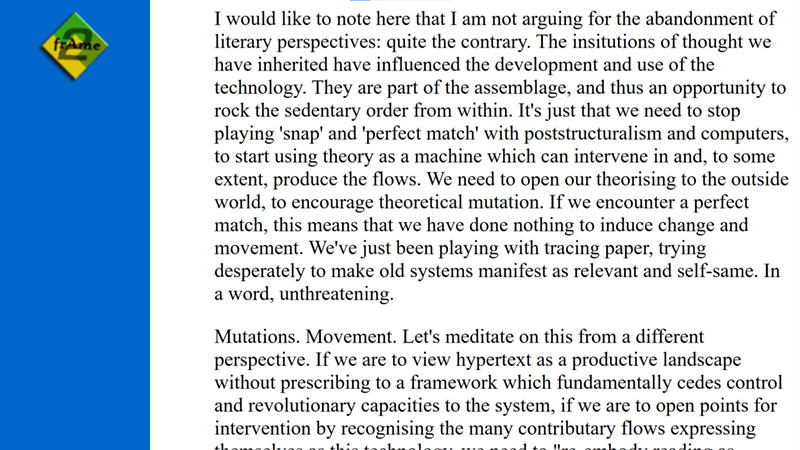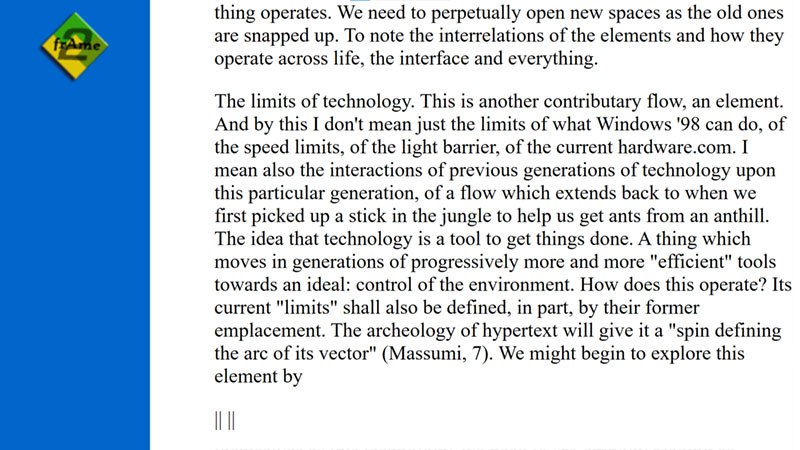". . . The current definition of hypertext relies on the structure of the networked system and its contents (ie: hypertext as a thing-in-itself), and often envisions this system as the embodiment of radical poststructural theory. Consequently, it appears to be at war with the Line and Print Culture as we conceptualise them. This is the optical effect. This is the utopian dream we need to depart from. In some cases this perspective is then generalised outward, producing a society which is the specialised offspring of hypertext and poststructuralism, and a subject more concerned with extracting signals from the noise than it is with the apprehension and engaged desiring-production of itself and its environment.
I would like to note here that I am not arguing for the abandonment of literary perspectives: quite the contrary. The insitutions of thought we have inherited have influenced the development and use of the technology. They are part of the assemblage, and thus an opportunity to rock the sedentary order from within. It's just that we need to stop playing 'snap' and 'perfect match' with poststructuralism and computers, to start using theory as a machine which can intervene in and, to some extent, produce the flows. We need to open our theorising to the outside world, to encourage theoretical mutation. If we encounter a perfect match, this means that we have done nothing to induce change and movement. We've just been playing with tracing paper, trying desperately to make old systems manifest as relevant and self-same. In a word, unthreatening." -- from Dr. Belinda Barnet, Reconfiguring Hypertext as a Machine: Capitalism, Periodic Tables and a Mad Optometrist
"Dr Belinda Barnet is Senior Lecturer in Media at Swinburne with research
interests in digital cultures, social media, data privacy, platform
regulation and the history of digital media. She welcomes applications
from prospective PhD students working on topics in digital media.
Alongside
her research work, Dr Barnet has worked as Service Delivery Manager
(Wireless Content Services) for Ericsson Australia. She is the author of
"Memory Machines: the Evolution of Hypertext" (Anthem Press UK, 2013)." -- from Swinburne University of Technology, experts.swinburne.edu.au
1 COPY IN THE NEXT
Published in 1999 by frAme in Issue 2.
Nottingham Trent University, with the permission of Sue Thomas, gave this copy of the work to the Electronic Literature Lab in Spring 2016.
PUBLICATION TYPE
Online Journal
COPY MEDIA FORMAT
Web
